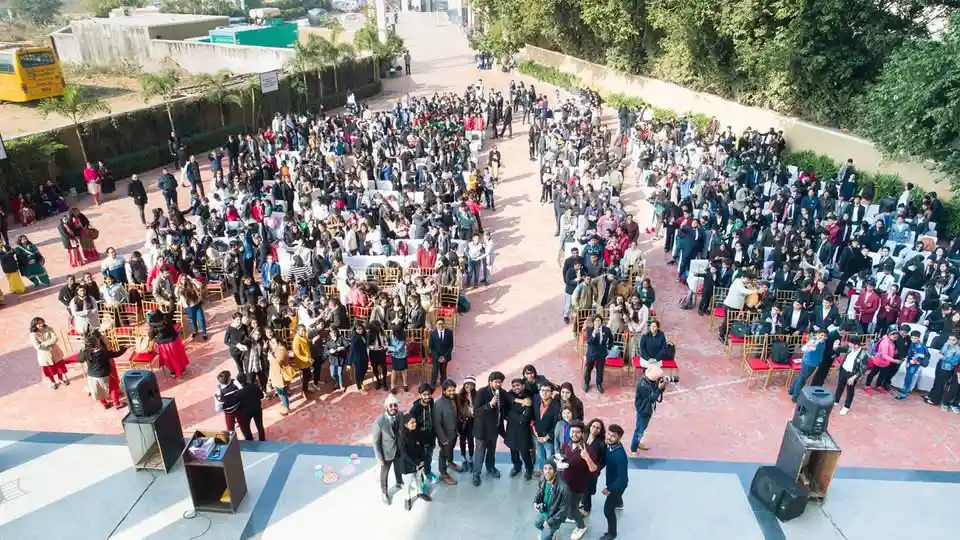


It was a sunny December afternoon when the chaos began. Maha Behes - our national debate finale, our biggest event of the year, was in full swing at a sprawling school campus teeming with debaters, spectators, and a crew of exhausted-yet-enthusiastic team members.
This particular year stood out—not just for the sheer scale of the event but because it marked the first time we implemented a brand-new scoring system, designed by a business professional who had joined the Behes ranks as a beloved member of our quirky team.
The scoring system was a marvel—efficient, transparent, and a massive leap from the manual methods of yore. It promised fairness and seamless management of results, something we desperately needed as the tournaments grew. But, as with all innovations, it came with its teething troubles. On the second day, just before the results of the opening ceremony were to be displayed, disaster struck. A glitch appeared, rendering the scores inaccessible.
Panic spread through the team like wildfire. We were a motley crew back then: our spirited founder, always the first to take charge, a teacher who had left her stable job to pursue her passion for debate with us, a college student on her way abroad for further studies, another righteous college student with a knack at pleasing the crowds and me—a law school student juggling exams and a passion for debate training, often with a mix of gusto and procrastination.
As chaos erupted, everyone sprang into action. The scoring expert dove into troubleshooting, while the rest of us scrambled to ensure the debaters didn’t sense the technical storm brewing behind the scenes. I was racing from one end of the campus to the other, calling my memory in on every shred of technical wisdom I’d picked up over late-night team sessions.
By some miracle—call it teamwork, perseverance, or sheer luck—we managed to resolve the glitch just in time. The results were displayed, the ceremony proceeded without a hitch, and the crowd was none the wiser. But if the debaters were the stars of the show, the team backstage was undoubtedly the unsung hero.
Day 2 of Maha Behes was unforgettable. After the intensity of the debates, the evening transitioned into a celebration—the Maha Behes Ball. Students sang their hearts out, rapped with uncontainable energy, and danced to beats that echoed through the winter chill. It was a moment of joy, camaraderie, and relief for everyone involved.
The Maha Behes mega tournament wasn’t just about the debates or the new scoring system. It was about the people—the team who worked tirelessly, the students who brought their best selves to the table, and the moments that made all the chaos worthwhile. For me, it was also a strange blend of experiences. Mornings were spent hauling ass across the venue, making sure everything went smoothly; evenings were filled with laughter and music; and nights were a whirlwind of cramming for my law exams under the guidance of seasoned professionals who happened to be on our team and who were from fields not connected to law in any manner whatsoever. Every corner of the hotel where we stayed buzzed with activity—last-minute preparations for the next day, recounting the day’s triumphs and mishaps, and bonding over shared exhaustion.
Looking back, that Maha Behes wasn’t just about the debates or the new scoring system. It was about the spirit of the Maha Behes mega tournament and how it brought people together to create something extraordinary. That year, we didn’t just host one of the largest gatherings of debaters in India; we learned that no glitch, no hurdle, and no sleepless night could dampen the spirit of Behes. And for someone like me, juggling law school lectures that sucked your soul out and a passion for debate, it was a lesson to just keep going, despite all odds. Here’s to that unforgettable winter, to the madness of Maha Behes, and to every single person who made it an experience we’ll carry with us forever.